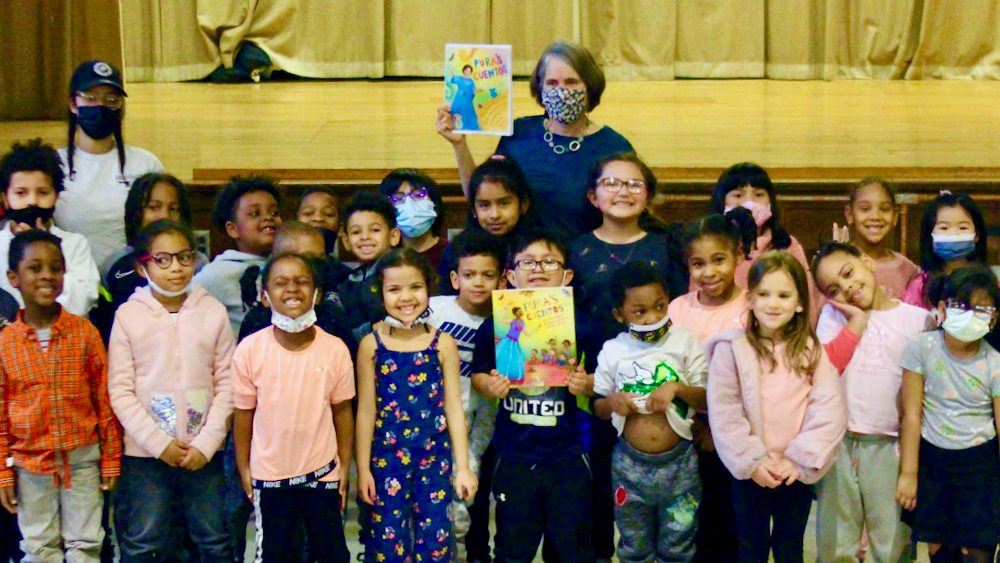
Watch our Book Chat with Annette Bay Pimentel
A hundred years ago, when Pura Belpré took a job at the New York Public Library, there was a rule: the stories told to children at Story Hour could only come from books. The books were all in English, so the stories were too.
Belpré, the first Puerto Rican librarian at the NYPL, realized the rule was doing her patrons a disservice. So she began telling bilingual stories from memory, drawing on the folk tales her grandmother had told her as a child. Eventually she published some of those stories, and those books ended up on the shelves of the NYPL.
“I write books because I love stories, and that’s one of the things I love about Pura Belpré,” author Annette Bay Pimentel told the youngest children in our Beacon After School program in a recent visit. (Beacons are mini-community centers embedded in schools. They host activities for all ages in the afternoons and evenings, including After School programs that provide children a safe and enriching space while their parents are working.)
Pimentel’s beautiful picture book, Pura’s Cuentos: How Pura Belpré Reshaped Libraries with Her Stories won our 2021 Goddard Riverside CBC Youth Book Prize for Social Justice. The author said she drew her inspiration for the story partly from her own life.
“This book started a long time ago when my family lived in another country,” she told the children. “We put our daughter in a Bosnian kindergarten so she could learn Bosnian.” But the girl struggled with the language and grew increasingly unhappy. One day Pimentel took her to the school library.
“That librarian saw how sad she was, and she said, ‘Why don’t you come in once a week and tell a story in English,’” Pimentel recalled. They launched a bilingual story hour that drew the children together—just as Pura Belpré had done a century before.
The Beacon children presented Pimentel with a handmade book of drawings they’d made of their favorite moments from her story. They asked a lot of tough questions, including “How many things did you do when you were a child?” But perhaps the toughest was, “Why did Pura Belpré break the rule?”
Pimentel paused for a moment, then said: “We have rules to keep us safe, right? But sometimes the rules aren’t to keep us safe; they’re there because they’ve always been there.” Once Belpré challenged the status quo, she added, “The people who were in charge decided she was right, so they changed the rule.”
Most importantly, she said, Belpré realized libraries should reflect and celebrate the communities they serve. And we can all play a role in making that happen.
“If you can’t find all the books you’re interested in, then you can write a book!” she exhorted.
Then she drew out some simple paper puppets, broke the children into groups, and turned them into a giggling chorus of frogs (borón, borón!), roosters (qui-qui-ri-qui!) and ducks (cuac, cuac!)—just like Pura Belpré would have done.